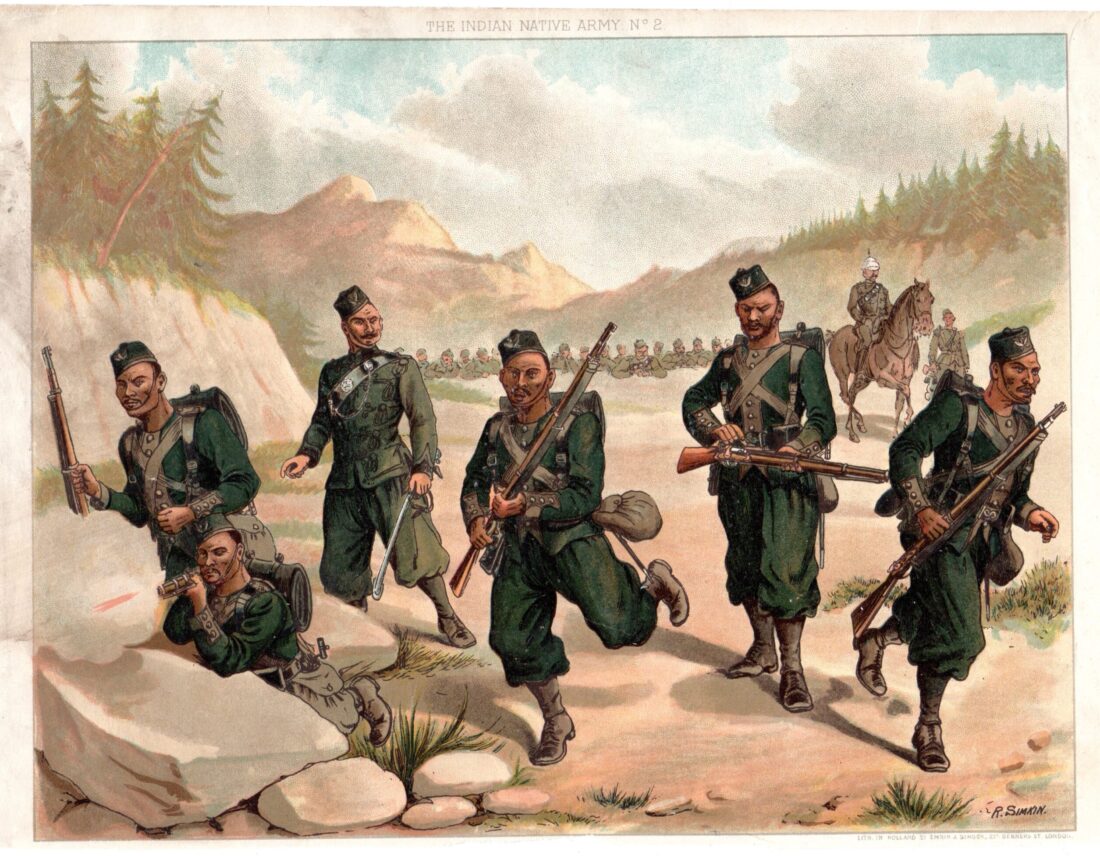Operation GRAPPLE
28 March 2025 will mark 30 years since 28 Transport Squadron, The Queen’s Own Gurkha Transport Regiment (QOGTR) began deploying to the Balkans as part of Operation GRAPPLE VI, the UKs contribution to the United Nations led peacekeeping mission in former Yugoslavia.
The Socialist Federal Republic of Yugoslavia had begun to fracture after the death of its leader, Josip Broz Tito, in 1980. The break-up was accelerated by the emergence of revolutions and independence movements across eastern Europe, which led to the collapse of the Soviet Union in 1991. As the constituent states of Yugoslavia sought full independence, political instability and civil unrest escalated into widespread conflict that saw large scale displacement and ethnic cleansing.
UN peacekeeping efforts in the Balkans began in early 1992, with the formation of the United Nations Protection Force (UNPROFOR). UNPROFORs mission was to facilitate peace talks between the warring factions, create de-militarised safe areas and aid refugees.
28 Transport Sqdn began training for the deployment in January 1995. On 28 March, the advance party flew out of RAF Lyneham. The last elements of the squadron arrived in Croatia by 14 April, and was designated the British Transport Squadron of the British Logistic Battalion. Being part of a UN force, the Gurkhas wore blue UN berets. Alongside other British units, 28 Sqdn was quartered in the Dalma Warehouse Complex, near the city of Split. Accommodation was basic, with 30 soldiers sharing a room.
Undeterred by the sparse living situation, 28 Sqdn set to work. Equipped with Demountable Rack Offload and Pickup System, or DROPS vehicles, its mission was to transport fuel and supplies to British units in Croatia and Bosnia. Initially, convoys runs were routine, and 28 Sqdn had little problem passing through the checkpoints of the various warring factions. This changed as the deployment continued, with local commanders increasingly harassing UN convoys. Fortunately, officers had received training in negotiation, and a large majority of convoys were able to reach their objective.
………………
In June 1995, the situation in Bosnia intensified when British soldiers from the Royal Welch Fusiliers (RWF) were taken hostage in the besieged town of Gorazde. In response, the UK deployed 24 Airmobile Brigade, which included a composite troop containing elements of 28 Sqdn’s Rear Party. Flown out to Bosnia in June, this force became ‘C’ Troop, 27 Transport Regiment, Royal Logistic Corps.
Commanded by Captain Colin Francis, ‘C’ Troop’s first mission was to transport humanitarian relief to a refugee camp at Tuzla. Later on, Captain Francis wrote about the pride and satisfaction the Gurkhas felt seeing the supplies handed out to the refugees.
Next, the Troop was employed in resupplying the guns of 19 Field Regiment, Royal Artillery. Dug in on Mount Igman, 19 Field Regiment were firing on Serbian forces besieging Sarajevo. One section of ‘C’ Troop was attached to 19 Field Regiment during this operation, and carried ammunition to its guns under incredibly trying conditions. The roads up to the gun positions were narrow and often went through mined areas. However, through their skilled driving the section carried out its mission without sustaining casualties. Further back, ‘C’ Troops other two sections worked tirelessly to deliver ammunition to the Ammunition Control Point.
With its work around Mount Igman completed, ‘C’ Troop were sent to aid in the evacuation of UN forces from Gorazde. For its part, ‘C’ Troop was to facilitate the removal of UN equipment. On their first night at Gorazde, Lance Corporal Ganeshbahadur Gurung was on sentry duty at a UN compound when he saw a lone RWF soldier fighting two armed intruders that were trying to steal his weapon. Ganeshbahadur charged at the intruders, punching and kicking them until they released the soldier. Their plan foiled, the intruders ran out of the compound, with Ganeshbahadur in pursuit. Realising they were being chased, the intruders began to fire at him, forcing Ganeshbahadur to find cover.
With it now clear that hostile fighters were in the area, it was decided that any attempt by intruders to breach the compound would be met with lethal force. Soon after, a flare alerted the RWF and Gurkha troops to three intruders attempting to cut through the perimeter fence. The Gurkhas joined the RWF in opening fire on them, resulting in two of the intruders being killed and the other wounded. After this no more attempts were made to breach the compound, and ‘C’ Troop continued its work without interference. 28 Sqdn returned to the UK in October 1995, with ‘C’ Troop following a month later.
Although it saw no casualties from hostile action, 28 Sqdn did suffer one fatality when Private Indrakumar Limbu was involved in a serious road accident. Indrakumar was flown back to the UK for treatment but died of his injuries at the Queen Elizabeth Military Hospital.
Despite this sad loss, the tour had otherwise been a success for 28 Sqdn. Its transports had driven a combined 1.5 million kilometres, and delivered over 3 million litres of diesel. On 24 November, a medal parade was held and each soldier from the squadron was presented with a UNPROFOR Medal. Units of QOGTR would deploy to the Balkans again as part of Operation RESOLUTE in 1996 and Operation PALATINE in 1999, contributing to a lasting peace in the Balkans that continues to the present day.

The UNPROFOR Medal, awarded to all personnel who served in the UN peacekeeping operations in Bosnia and Croatia between 1992 – 1995.

Sign up to our FREE Newsletter
Join our community and sign up for our FREE Newsletter today! Stay in the loop with the latest updates on our news, lectures, exhibitions, events, products, services, and fundraising activities.

